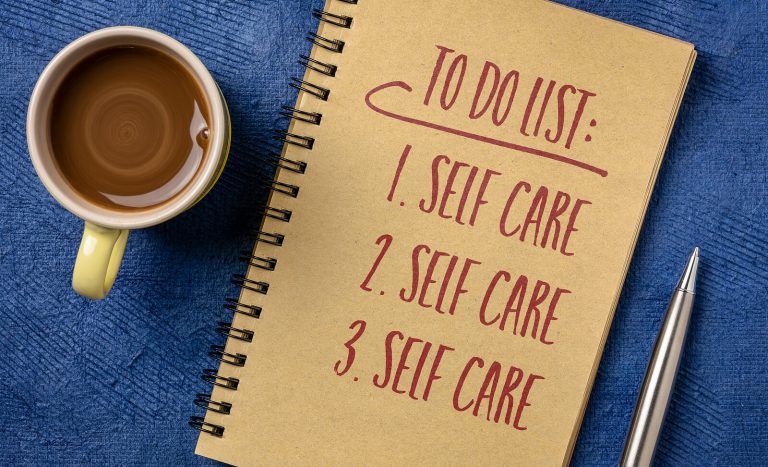Top 10 Life-Stressors That Can Trigger Anxiety

Stress and Anxiety
Throughout our lives, we face situations that can be stressful. Stress has both short-term and long-term effects on the mind and the body, and it is important that we do everything we can to eliminate or alleviate stress. Stress can also create periods of anxiety, which may include recurrent intrusive thoughts and excessive worry. Often, stress is thought of as “future-oriented.” Prolonged stress and anxiety can lead to increased blood pressure, increased heart rate, feelings of dizziness or fainting, and other heart problems.
Below are the top 10 life stressors that contribute to feelings of anxiety.
Top 10 Life-Stressors
- Death of a close loved one
- Divorce or marital separation
- Major personal illness or injury
- Chronic medical problems
- Getting married or planning a wedding
- Losing your job or being laid off
- Struggling with money
- Incarceration
- Puberty and adolescence
- Retirement
Ways to Manage Anxiety
Research has shown that people who have recurring anxiety have a similar underlying thought process, and suffer from similar symptoms. There are ways to manage symptoms of anxiety and stress at home, below is a list of recommendations.
- Deep breathing or meditation: Deep breathing independently or through meditation can assist in relaxing the body and mind. Focusing on your breath can allow your mind to stop following an anxious thought pattern, and prevent the episode from escalating into a panic attack.
- Exercise: Consistent exercise can help release endorphins that make the mind and body feel good. As an additional benefit, exercise can increase confidence, improve the immune system, and help with your overall health.
- Journaling: Journaling can assist in expressing your feelings, identifying patterns, and providing clarity on emotions or situations that may be related to your anxiety. If seeking assistance from a therapist, it can also be a great way to capture thoughts or feelings in the moment and come back to them later.
- Avoid alcohol or Recreational Drugs: Engaging with drugs or alcohol may help alleviate anxiety or stress at the moment, but they are not useful long-term coping strategies. Not only do the effects of drugs and alcohol have negative effects on your long-term health, but they can also worsen symptoms of stress and anxiety. Drugs and alcohol can alter the way chemicals and hormones are released in the brain, and can eventually alter how you manage stressful situations.
- Get at Least 7 Hours of Sleep: Getting enough rest at night can help restore the brain’s prefrontal mechanism, which is responsible for managing emotions and regulating physiological activity. The recommended amount of sleep from the National Institute of Health is 7 or more hours of sleep per night.
- Eat a Balanced Diet: Eating a balanced diet that consists of protein, fruits, vegetables, grains, and dairy helps improve overall mood. When the brain receives the nutrients it needs to function, performance and regulation of emotions can improve.
- Talk to a Psychologist: Through psychological intervention, patients can discover new perceptions about themselves and the world around them, learn how to manage anxiety and stress symptoms and identify triggers for their anxiety and stress.
Psychologists have tools to diagnose anxiety disorders and assist in managing their symptoms. A psychologist can help with other disorders that are related to anxiety, like phobias, obsessive-compulsive disorder (OCD), social anxiety, and post-traumatic stress disorder (PTSD). Tools that psychologists have for these disorders may include;
- Neurofeedback: This technique typically includes the use of 2 to 4 surface electrodes, sometimes called “surface neurofeedback.” It is used to change the amplitude of specific brain waves in particular brain locations to treat a variety of challenges, including anxiety. The treatment is typically based on reinforcement learning, providing real-time feedback to the trainee, and can reward and reinforce desired brain activity or inhibit undesirable activity patterns.
- Eye Movement Desensitization and Reprocessing EMDR: Encourages the client to briefly relive or process unresolved trauma while getting bilateral stimulation, which can be eye movement or holding a vibrating buzzer in each hand. EMDR’s goal is to help you heal from trauma or other distressing life experiences, and it works well to help resolve anxiety.
- Internal Family Systems Therapy IFS: Promotes personal growth and corrects recurring or problematic behavior patterns. This form of therapy helps people identify and accept the different parts of themselves and heal the parts that are wounded.
- Cognitive Behavioral Therapy CBT: A form of talk therapy, which helps the patient become aware of inaccurate or negative thought patterns. Patients develop the ability to view challenging situations more clearly and respond to them more effectively.
Managing stress and anxiety is never easy, please reach out to Mountain Vista Psychology for more information on resources or help that may be available to you.
Schedule an Appointment
We believe in an integrative and holistic approach to help you make the changes you want. Contact us now to schedule an appointment or to request a 20 minute free phone consultation. During this session, you will be invited to share your story and ask any questions you may have.
Recent Articles
Now Serving South Denver: Mountain Vista Psychology Opens New Location for Counseling, Neurofeedback & Testing
To The Wonderful Mountain Vista Psychology community: We have some exciting news to share: We are Growing and Excited to…
ADHD Testing: How Women Are Underdiagnosed and Misunderstood
Attention-Deficit/Hyperactivity Disorder (ADHD) is one of the most widely discussed and most commonly diagnosed disorders today. ADHD is more than…
What Does Self-Care Look Like in Motherhood
Motherhood can be a beautiful, transformative journey, but it is also exhausting, overwhelming, and often self-sacrificing. Somewhere between diaper changes,…
How Online Therapy Can Support Busy Mom Schedules
Motherhood is beautiful, but it is also exhausting, isolating, and overwhelming at times. So, let us just say it out…





